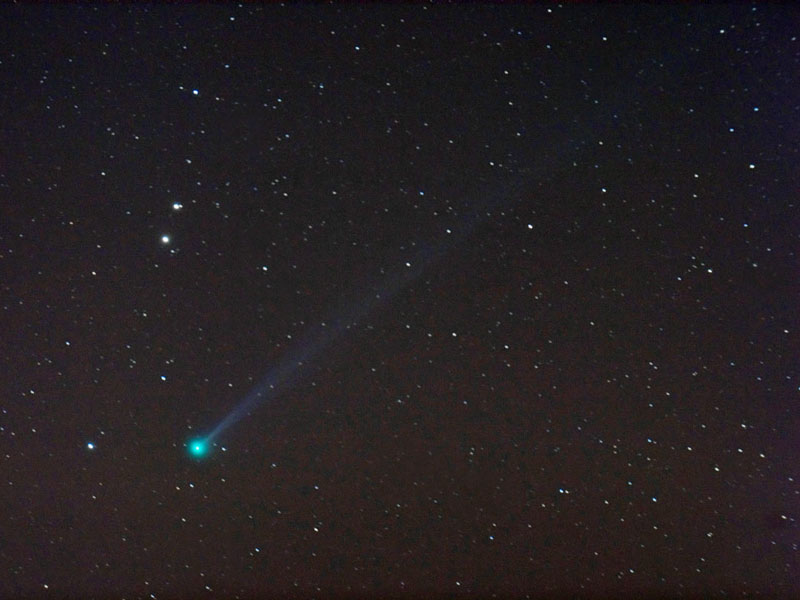
|
Credit & Copyright: Chris Schur
Explanation:
Have you ever seen a comet?
Comets bright enough to be visible to the unaided eye appear only
every few years.
Right now, however, a new comet has brightened unexpectedly and is
visible as a faint streak to the unaided northern observer in the eastern morning
sky just before sunrise.
Binoculars may help.
Comet Pojmanski, officially designated C/2006 A1 and discovered only in January,
now sports a turquoise tail several times longer than the full moon.
Comet Pojmanski's
ion tail is due to gas particles expelled by the comet
being pushed away from the Sun by the
solar wind,
the same wind that ionizes gas in the tail causing its blue tint.
Pictured above as it appeared only last week,
Comet Pojmanski has now begun to fade as its
orbit around the Sun takes
it further from the Earth.
|
January February March April May June July August September October November December |
| ||||||||||||||||||||||||||||||||||||||||||||||||
NASA Web Site Statements, Warnings, and Disclaimers
NASA Official: Jay Norris. Specific rights apply.
A service of: LHEA at NASA / GSFC
& Michigan Tech. U.
Based on Astronomy Picture
Of the Day
Publications with keywords: comet - comet tail
Publications with words: comet - comet tail
See also:
